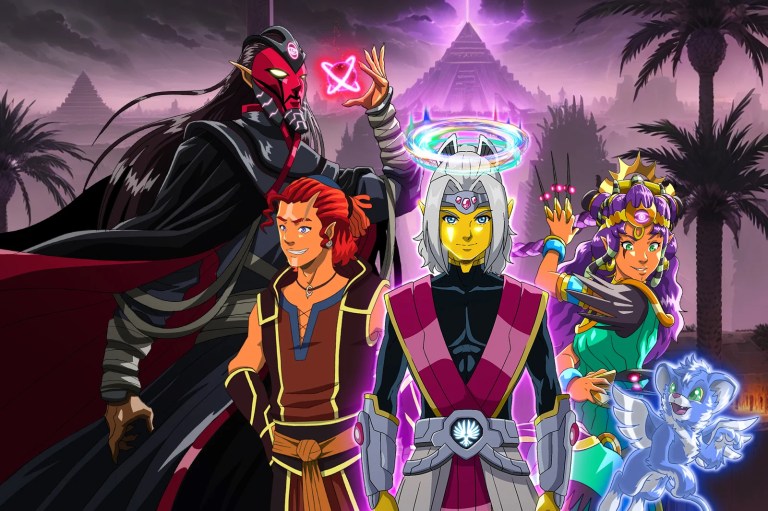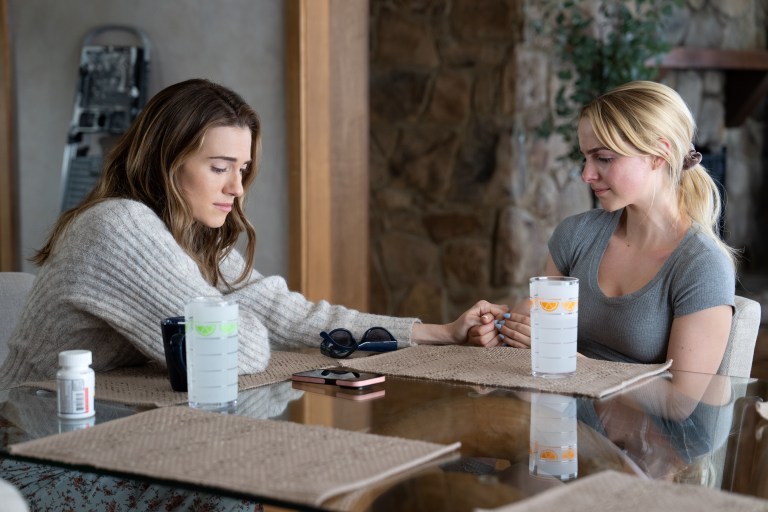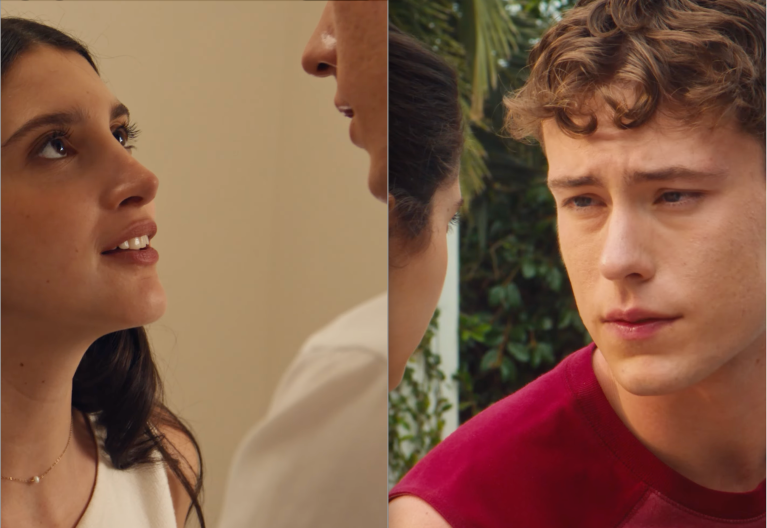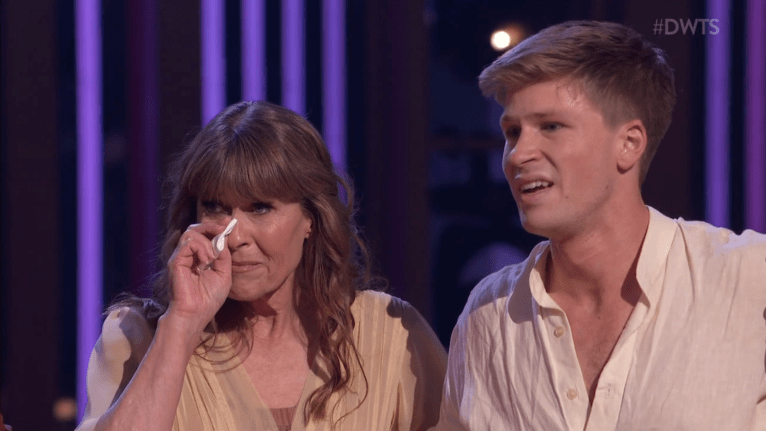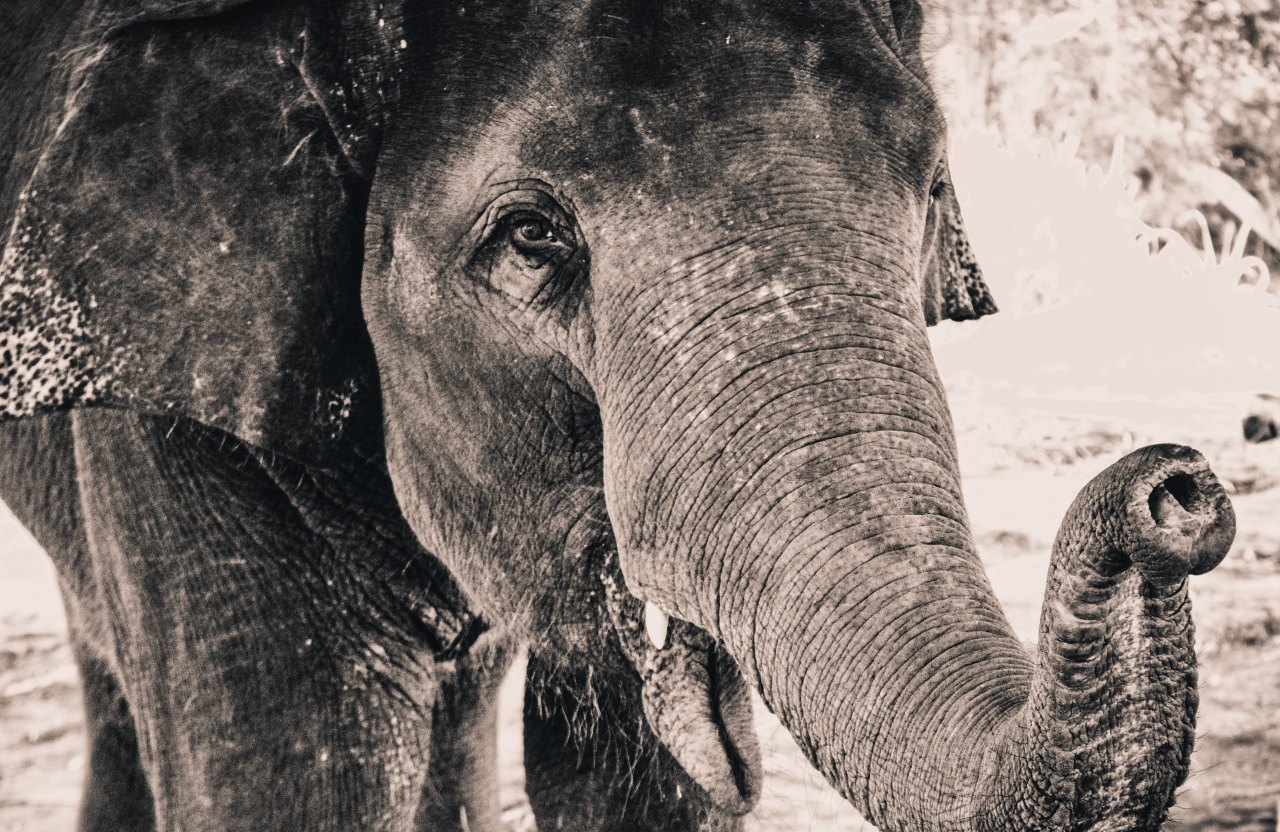
What Elephants Teach About Heartbreak
As happy as he made me, I guarded my heart. I had relationships before he came along that blew up in my face because I followed my heart more than I did my head.

When elephants lose a mate, they can die from a broken heart. They are the only animals that die as a result of heartbreak. It feels like a cruel irony that these big, magnificent creatures can be taken down by their own beating heart and the absence of a loved one.
Emotionally complex and deep feeling creatures by nature, elephants are always aware when their mates are nearby like they’ve become one living being entirely. When their mates have disappeared – sometimes because they have been poached for ivory, died of anthrax or have been separated from the pack in the wild – the surviving elephant left behind is ravaged by a loss.
They are one of the only animals that can cry real tears. As they sob wildly, the elephant collapses to the ground. It’s always up for debate of whether or not they cannot get up or they will not get up. Other elephants in their herd try to comfort them, try to will them back to life, but it’s too late. The brokenhearted elephant is determined to die. And because they have been starving themselves, unable to get up off the ground, that determination brings them to their grave.
Sanctuaries and rehabilitation centers were established to lessen the number of elephant deaths. These heartbroken elephants are given a sense of community, meet new mates, and find happiness again because their lives depend on it. We create places such as this because we can forgive these gentle giants for feeling so much love that it literally kills them.
We also know that this epidemic doesn’t happen to people. There are no sanctuaries for people to wander in to, no rehabilitation centers that will make them feel how they did before their hearts were broken. We don’t forgive humans when they, too, feel like they could die of a broken heart.
In all fairness, there are very few reported instances where a person has been confirmed to die from a broken heart. Maybe a bunch of tabloids claimed that Johnny Cash died from a broken heart after his beloved June died five months prior, but that was speculative because it ultimately offered a human odyssey that sounded sexy to readers and Johnny and June fans. It all comes down to this simple fact: humans and elephants are not the same. Humans are expected to have a perspective that they will heal from their grief in due time, and they cannot let their sadness keep them from living – metaphorically and literally.
I used to think that saying someone died of a broken heart was the polite way adults would explain what liver cirrhosis is to young children. Until I had my heart broken.
As human beings, we shield our feelings as a means to protect ourselves, to not let other people have the opportunity to hurt us. It’s easier to hold back our feelings, because there is nothing more desperate than being the one that loves too much, being the one with everything to lose. You make sure that you are the one who leaves, not the one who is left – that’s an option the elephants aren’t lucky enough to have.
When I wasn’t expecting it, I had met the man who would go on to be my boyfriend. It became serious earlier than I was used to in past relationships, but being with him was one of the happiest times in my life. I had never known anyone like him. To quote The Beatles’ song “In My Life”, “of all these friends and lovers there is no one compares with you.” It felt like the kind of relationship that I would have envied as a single woman. Holding hands in public, watching him get the approval of my mother (which is surprisingly hard to get) and I was feeling less anxious about thinking ahead to the future, where I thought he would be.
As happy as he made me, I guarded my heart. I had relationships before he came along that blew up in my face because I followed my heart more than I did my head. With this new relationship, I promised myself that I was going to be more logical than emotional. I bottled up the love that I had for him and instead of giving it to him, I kept it locked up and safe. I thought this would ensure that I wouldn’t get hurt. I was wrong. Somewhere along the line, we had lost each other. As I tried scrambling to show him just how much I loved him, he reminded me that this was real life, not a movie. People leave and they don’t come back. My heart shattered.
The next day I felt cold, the kind that comes from being alone. I kept picturing him talking to other girls, taking them out on dates to the places we used to go to and kissing and touching them with those big hands I used to have a claim on, and it broke my heart all over again. I felt like an elephant, the way I cried for days, weeks, months even. I would push my food around on my plate, watched as they created mountains and rivers and roads, anything that could bring me back to him. I stayed in bed, staring at my ceiling.
I started to imagine those beautiful elephants, weeping and starving under the intensity of the Kenyan sun, their hearts aching for a mate that they will never have again and I realized that this is perhaps the biggest difference between an elephant and myself. When elephants suffer from heartbreak, it is a sure sign that death is coming. When I had my heart broken, it was a telltale sign that I was still alive. In my most desperate moments of misery, I didn’t know which one of us had the better deal.
While friends and family were sympathetic to my becoming single again all of a sudden, they expected me to quickly move on with my life less than a day after.
“You’re going to get another boyfriend, stop crying over this one,” was an oft-heard phrase when well-intentioned friends and family asked me how I was coping and I could only reply with walloping tears and shaking shoulders.
Of course, in the depths of my broken heart, I knew that what they were saying was right. But at the same time, all I could think was how strange it was that we as human beings devote time and energy to saving the elephants when they get their hearts broken, but we can’t forgive other humans for feeling the same.
I began paying more attention to the mechanics of the human heart, the way it silently pumped 2,000 gallons of blood per day. I realized how strange it was that we don’t notice our hearts more often. This muscle keeps us – humans and animals alike – alive. How come we don’t notice it? But you do notice. When something goes wrong, you notice it. And I’d like to think that the elephants noticed their heart changing long before they felt the fatal stab of heartache.
We always associate heartache and loss with negativity, because it is always going to be sad, no matter what. Elephants die. Sanctuaries are tasked with finding ways to keep them from going extinct. People go through breakups and face the existential crisis of if there is something wrong with them. We face going through life alone. We see broken hearts always as a bad thing.
It doesn’t have to be. Instead, we can think how lucky it is that we have this thing that not only keeps us alive but reminds us what a privilege it is to love. When you suffer your next heartbreak, know that the elephants aren’t dying for nothing. They had lived for love. And they are dying for the same cause. There is something poetic about that.
Maybe now that I’m past that stage where I’m not mistaking my grief for symptoms of liver cirrhosis and I have (mostly) stopped fantasizing about slashing my ex-boyfriend’s tires, I think it’s beautiful the way elephants love, the way elephants feel.
Too often, we are ashamed of feeling, let alone loving. That would mean that we have to accept vulnerability and to be vulnerable means we are giving others the opportunity to hurt us. Imagine loving someone so much that when you lose him or her your heart stops. Elephants give their hearts to their mates without thinking about the consequences. One can argue that animals don’t have souls, but elephants are one of the few animals that feel empathy. They know that vulnerability yields connection. Elephants know this better than human beings do. And the sooner we can learn that from our animal companions, we can be better human beings.
I am not saying that we should not care about the elephants. Or that we should not be sad when a relationship ends. I am saying that you should do just the opposite. Grieve. Cry for as long as you need to. Pay attention to your heart not just breaking, but also piecing itself back together. To understand what it means to feel like an elephant, you have to feel with your whole heart.
Even though there are still some days when I feel like the sadness could easily kill me, I am thankful for that relationship and what I learned from getting my heart broken. I used to be afraid to love, afraid to get my heart broken and now that I have gone through both and I have come out triumphantly, if not slightly beaten down. I won’t die from a broken heart. I also won’t be ashamed to face my own vulnerability.
If I’m lucky enough to love again one day, I won’t think about the ways we could hurt each other or think about what will happen if one of us leaves before the other is ready. Instead, I will think about the elephants. I will think about how they are willing to die in the name of love, how they don’t let the risk of dying from heartbreak keep them from loving. I can’t wait until the day comes when I will look into this new man’s eyes and know that I will be feeling. Like an elephant. ![]()
